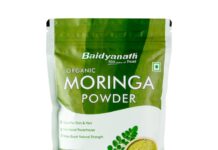
A new recycling line for post-consumer beverage cartons has started operations in Poland with a joint investment of approximately 29 million Euros from Stora Enso, provider of renewable products in packaging, biomaterials and wooden construction, and Tetra Pak, a world leading food processing and packaging solutions company.
Stora Enso has invested approximately 17 million Euros into a new repulping line that will recover the carton fibers, and Tetra Pak along with Plastigram have invested a total of approximately 12 million Euros to build the new line.
The line has the potential to triple the annual recycling capacity of beverage cartons in the country – from 25,000 to 75,000 tonnes – and provides scope to absorb the entire volume of beverage cartons sold in Poland, as well as additional volumes from neighboring countries, including the Czech Republic, Hungary, Slovakia, Latvia, Estonia and Lithuania.
Featuring an annual capacity of 50,000 tonnes, the state-of-the-art line at Stora Enso’s production unit in Ostrołęka (Poland) handles solely beverage carton material separation, detaching fibers from polymers and aluminum.
The fibers are then recycled into carton board materials, effectively contributing to material circularity by turning used paper-based packaging into new paper-based packaging materials. This new paper recycling facility is complemented by Czech company Plastigram Industries, that, together with Tetra Pak, is industrializing a solution to recycle polyAl1 into new products.
“For decades, we have been working to enhance beverage carton recycling capacity, co-investing with recyclers, technology providers and suppliers in new equipment and facilities” comments Lars Holmquist, EVP Sustainability & Communications at Tetra Pak.
“In 2022, Tetra Pak contributed nearly 30 million Euros to collection and recycling projects worldwide, with plans to go further and invest up to 40 Euros million annually over the next years. As part of the Alliance for Beverage Cartons and the Environment (ACE), we support the industry ambition to increase the collection for recycling rate of beverage cartons to 90% and the recycling rate to 70%, in the EU, by 2030. I am very pleased to see that our collaboration with Stora Enso translates into one of the largest recycling hubs for beverage cartons in Europe, contributing to this ambition. This is also an excellent example of how systemic and collective actions can help keep quality renewable materials, like paper fibers, in the loop.”
“We are very pleased to see the results of our close cooperation with Tetra Pak, who, like Stora Enso, has the development of sustainable solutions at their core. This new modern solution marks a significant addition to European recycling capacity and a concrete step forward in the circularity of consumer packaging. In addition to complementing the current scope of our production site in Poland, the recycling facility will significantly contribute towards the recycling and waste reduction goals of the EU’s proposal for a Packaging and Packaging Waste Regulation,” says Hannu Kasurinen, EVP Packaging Materials at Stora Enso.
The new line is set to ramp up recycling of beverage cartons throughout Central and Eastern Europe, signaling the beverage carton industry’s willingness to support the circularity goals of the proposed EU Packaging and Packaging Waste Regulation (PPWR), and showcasing the pivotal role of recycling in helping the green transition of the food packaging sector. The packaging industry has already invested approximately 200 million Euros to increase the capacity for beverage carton recycling in the EU and plans to invest a further 120 million Euros by 2027.
IndiFoodBev — authentic, impactful and influential
An English-language food and beverage processing and packaging industry B2B platform in print and web, IndiFoodBev is in its third year of publication. It is said that the Indian food and beverage industries represent approximately US$ 900 billion in revenues which implies more than 20% of the country’s GDP. Eliminating the wastage on the farmside can help to deliver more protein to a higher number of the population apart from generating sizable exports. The savings in soil, seeds, water, fertilizer, energy and ultimately food and nutrition could be the most immense contribution that country is poised to make to the moderation of climate change.
To improve your marketing and grow sales to the food and beverage processing and packaging industry, talk to us. Our research and consulting company IppStar [www.ippstar.org] can assess your potential and addressable markets in light of the competition. We can discuss marketing, communication, and sales strategies for market entry and growth.
Suppliers and service providers with a strategy and budget for targeted marketing can discuss using our hybrid print, web, video, and social media channels to create brand recognition linked to market relevance. Our technical writers are ready to meet you and your customers for content.
The second largest producer of fruit and vegetables in the world is continuously expanding processing capacities and delivery systems with appropriate innovative technologies. We cover product and consumer trends, nutrition, processing, research, equipment and packaging from farm to thali. Get our 2025 media kit and recalibrate your role in this dynamic market. Enhance your visibility and relevance to existing markets and turn potential customers into conversations. Ask for a sample copy of our bi-monthly in print or our weekly IndiFoodBev eZine each Wednesday.
For editorial info@ippgroup.in — for advertisement ads1@ippgroup.in and for subscriptions subscription@ippgroup.in
Naresh Khanna – 10 February 2025
Subscribe Now










